In the six short videos in this collection children are introduced to a wide range of family structures, each demonstrating the same love and care for each other.
These films and related teaching activity ideas are designed to help teachers deliver aspects of statutory Relationships education by exploring and celebrating diverse families and their relationships.
The materials can be integrated into a schoolβs Relationships education or PSHE scheme of work for KS1 where the focus is on what different families look like, and the characteristics of healthy and happy family relationships.
It is important to show sensitivity and understanding of childrenβs individual circumstances when using these films and related activities.
Please ensure you have viewed the films and read the safe teaching and learning guidance provided in the full document before using in the classroom.
Videos
Showing respect. videoShowing respect
7-year-old Eden and her younger sister Ava show the importance of understanding boundaries and having respect for other members of the family.
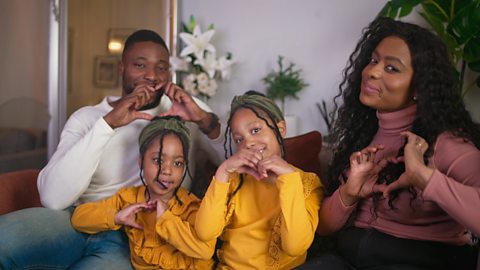
When families change and grow. videoWhen families change and grow
8-year-old Alexa and younger brother Archie's family changed when their mum died. But things changed again and now they have a step-mum and a half-sister.
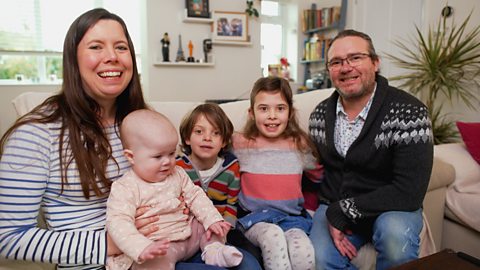
Supporting and helping one another. videoSupporting and helping one another
8-year-old Josh, twin brother Zac and older brother Nathan show us how they support and care for each other and where they seek help when they need it.
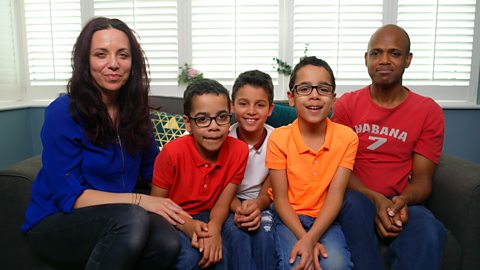
Caring family networks. videoCaring family networks
When 7-year-old Ivy's parents broke up her Dad moved out and she remained with her mum and brother. Ivy says that now she has two families.
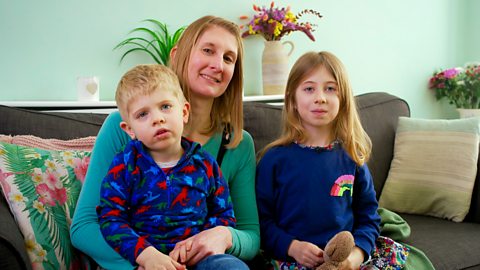
Helping out. videoHelping out
5-year-old Buster and brother Dexter show us how they help out around the busy family farm and how their responsibilities will change as they get older.
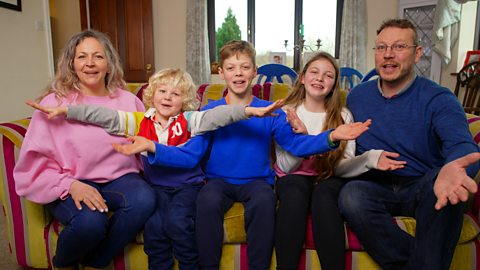
Two mums. videoTwo mums
5-year-old Henry introduces us to his home life with his Mama, Mummy and little sister Sophie. He shows us his family's loving and caring dynamic.
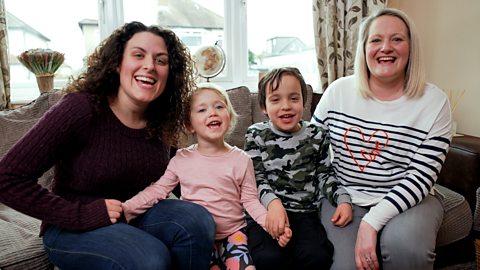
Curriculum links
The resource can contribute, either explicitly or implicitly, to the statutory and non-statutory areas of learning in the primary curriculum listed below.
General primary guidance:
- the fundamental building blocks and characteristics of positive relationships, with particular reference to family relationships.
- the features of healthy friendships, family relationships and other relationships which young children are likely to encounter. Drawing attention to these in a range of contexts should enable pupils to form a strong early understanding of the features of relationships that are likely to lead to happiness and security.
- Families of many forms provide a nurturing environment for children. (Families can include for example, single parent families, LGBT parents, families headed by grandparents, adoptive parents, foster parents/carers amongst other structures.)
Additionally the videos support these areas of learning and objectives that pupils should know by the end of primary school:
Families and people who care for me:
- that families are important for children growing up because they can give love, security and stability.
- the characteristics of healthy family life, commitment to each other, including in times of difficulty, protection and care for children and other family members.
- that othersβ families, either in school or in the wider world, sometimes look different from their family, but they should all respect those differences and know that other childrenβs families are also characterised by love and care.
- that stable, caring relationships, which may be of different types, are all at the heart of happy families, and are important for childrenβs security as they grow up.
Respectful relationships:
- the importance of respecting others, even when they are very different from them (for example, physically, in character, personality or backgrounds), or make different choices or have different preferences or beliefs.
- practical steps they can take in a range of different contexts to improve or support respectful relationships.
- the importance of permission-seeking and giving in relationships with friends, peers and adults.
Being safe:
- how to ask for advice or help for themselves or others, and to keep trying until they are heard.
- where to get advice - for example, family, school and / or other sources.
Additionally the videos support learning from the , including:
Health and wellbeing:
- Mental health
Relationships:
- Families and close positive relationships
- Respecting self and others
Living in the Wider World:
- Shared responsibilities
for the full Teachers' Notes, written by PSHE and primary education consultant Lucy Marcovitch.
Where Next?
Moodboosters. collectionMoodboosters
A new initiative to get primary school age children learning about mental health and wellbeing at home and in school.
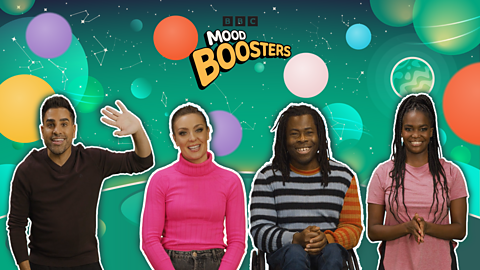
Bitesize
Use these Bitesize resources to set homework, independent study tasks or to consolidate learning for your pupils.

Newsround
The latest news stories from Newsround to share in the classroom.
